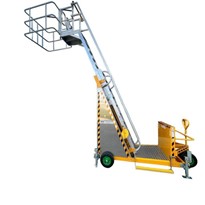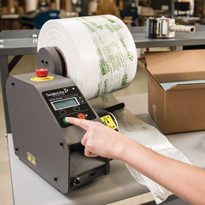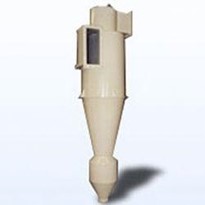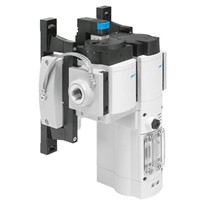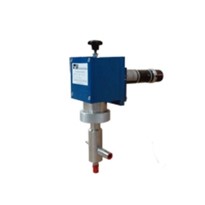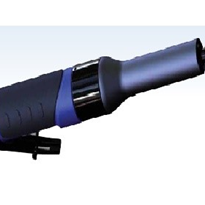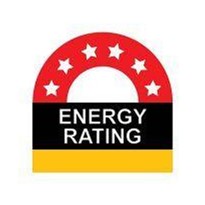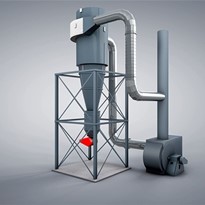To interface its machine control systems with the IT system, the company has opted for the uaGate SI gateway from Softing plus the open, platform-independent OPC UA standard.
uaGate SI at a glance
Easy controller connectivity
- Connectivity between controllers and ERP, MES, SCADA systems as well as between controllers
- Easy local and global networking as well as routing through firewalls
- MQTT Publisher functionality for transferring production data into IoT clouds
- Gateway configuration based on easy-to-use import interface
Best-in-class security
- Physically separated network interfaces
- Individually protected access to PLC data
- Separate sets of configuration rights
- Data encryption, user authentication meeting highest security requirements
Investment protection
- Modern communication capabilities suitable for new applications and retrofits
- Standard component suited to small and large automation projects
Zero maintenance
- All-hardware solution
- No need for software updates, operating system patches or PC maintenance work
- Failure-free operation for years after device has been plugged-in and configured once

Based in Munich, Germany, KraussMaffei Technologies GmbH is a leading manufacturer of machinery and equipment for the production and processing of plastics and rubber. Formed in 1838, the company looks back on a long tradition in machinery manufacturing, guided by a responsibility for offering its customers superior products that add value to their business. Customers in a wide range of manufacturing segments that includes automotive, construction, consumer goods, electrical/electronics, chemicals, white goods, medicine and pharmaceuticals are offered modern system and process solutions based on forward-looking megatrend topics such as lightweight engineering, surface finishing, reducing material/energy consumption and the use of natural fiber reinforced plastics.
Manual data collection
In order to ensure it remains able to meet its own high standards of quality, KraussMaffei Technologies took action some years ago. The company needed to record the states of its massive production machinery for parts weighing from 100 kg to 70 t. For this purpose, it deployed a defined TPM methodology to collect data that is used to optimize machine capacity utilization and production reliability. The process introduced to record OEE KPIs envisaged workers documenting both the production data as well as all abnormalities during normal operation or even machine downtime. To do so, data for each incident were entered manually in the company-internal SAP system. While this approach was able to achieve considerable improvements to efficiency, those responsible for the system also recognized that the manual entry method meant that information was neither continuous nor exact enough to achieve significant improvements to the high level already reached.
This gave rise to the idea of having a kind of continuously updated ‘medical record’ for each machine used in production. The transparency and measurability this creates would then form the basis for further improvements to processes in and around production.
For this to work, automated data collection would be needed, with defined records being stored by specialized MDC/PDC software – neither of which was present at project start.

A partner for ‘Industrie 4.0’
In the course of digitizing its machine pool, KraussMaffei Technologies simultaneously sounded out the market for a new MDC/PDC software for machine and production data collection, as well as a provider capable of interconnecting all of the production machinery to the IT system. “We already had a lot of experience on the subject of data collection,” explains Claudio Sutter from Industrial Engineering at KraussMaffei Technologies, “and so were able to draw up the software specifications ourselves. But the opposite was true about networking our machinery to the IT system – this was where we were looking for high-quality consulting expertise from our future partner.”
After extensive market research, the right software solution was identified and integrated without any problems by the chosen partner. The implementation of the automated data collection was a separate challenge all of its own, however, since the machine pool at KraussMaffei Technologies included equipment over 20 years old as well as ultramodern machinery – which proved to be the knockout factor for several IT consultants and system integrators on the final shortlist. Ultimately, the contract was awarded to SEP Software Engineering (SEP Group) from Hornstein, Austria, who had already successfully completed a number of Source: Softing/KraussMaffei Claudio Sutter, Industrial Engineering at KraussMaffei Technologies, Johannes Löhe, Head of Maintenance at KraussMaffei Technologies, Andreas Fischer, Managing Director Engineering at SEP Group, Bernhard Haas, Managing Director Sales at SEP Group and Dietmar Buxbaum, Managing Director at Buxbaum Automation, (from left to right) are using ‘Industrie 4.0’ to give KraussMaffei Technologies a significant boost to production plus a greater level of protection against outages. At KraussMaffei Technologies, the production machinery control systems are connected to the IT system with Softing’s uaGate SI. Open, platform-independent OPC UA technology offers straightforward networking at a local and a global level, plus secure data traffic through a firewall. machine modernization projects with KraussMaffei Technologies. SEP Group Managing Director Sales Bernhard Haas explains the project background: “The biggest challenge with this project was the need to go deep inside the various plant control systems and extract the data needed. While many of our competitors would just throw up their hands at this problem, we feel right at home in the world of Siemens and SINUMERIK and can contribute plenty of experience.”
Despite the diversity of the machine room control systems – from traditional to state-of-the-art – the data records for entry into the MDC/PDC software had to be kept as similar as possible. For this reason, existing PLCs were flashed with a rudimentary version of the software that fulfils all of the technical requirements and outputs a total of 16 signals. “While this might look a little cumbersome in a modern control system, the same signals are then output as from a 20-year-old control system – so the data records are identical and that’s what counts,” adds SEP Group Technical Director Andreas Fischer.

IT security in the spotlight
A solution was also needed that was able to provide simple, transparent connectivity between the heterogeneous machine pool and the IT system – to keep maintenance workloads manageable. Not least because the machines work with a huge variety of software packages, with many industrial PCs in the network running operating systems ranging from Windows NT to the latest versions. “This is why we were looking at Softing’s uaGate SI solution,” says Haas, explaining the next steps in the project.
The decision to adopt Softing’s uaGate SI for data communications was strongly influenced by the open, platform-independent, and generally accepted OPC UA standard that the gateway offers. Another key factor was the high priority given to network security by SEP Software Engineering from the outset. This was another area where Softing’s uaGate SI scored points with its integrated firewall. Dietmar Buxbaum, Managing Director of Buxbaum Automation, Austria (a member of the Softing Group, headquartered in Haar, near Munich, Germany), explains the security features offered by Softing’s uaGate SI: “Apart from the firewall, maximum protection from attacks is offered by the two physically separate network interfaces. PLC data access is also protected, and separate sets of configuration rights can be set up for the control and IT layer. This is especially useful for OEMs/machinery manufacturers who want to keep their proprietary control data just that – proprietary. And the data encryption and user authentication systems used naturally comply with the most stringent security requirements.”
“For the practical implementation, we picked the solution with the strongest focus on IT security,” says Fischer, justifying SEP’s choice of the Softing gateway. “This means there is no direct connection to the machines in the office network: instead, you create a separate solution with a firewall between the machinery and office network to ensure the maximum level of security.”
A positive impression
While a few small improvements were needed after initial tests of the machine communication setup, the overall idea of enabling transparent, real-time reporting on the status of all connected machinery, presented in both at-a-glance and detailed formats (using the automated OEE), was achieved without any serious problems. SEP Software Engineering is now involved in rolling out IT system integration to most of the company’s machine pool.
The verdict on the project was very positive from all concerned. KraussMaffei Technologies regularly highlighted the competent advice and rapid data staging via OPC for the KraussMaffei network by SEP Software Engineering. For its part, SEP Software Engineering praised the prompt technical support offered by Softing for questions involving the gateway firmware.
And the well-established team is already planning the next steps: KraussMaffei Technologies now wants to build on the progress made in a new project that uses the data acquired to enable condition monitoring for the machine pool to proactively detect machine outages. Once again, the Softing gateway is the perfect choice here, since the data are not only forwarded 1:1 to the database but can also be repurposed for other downstream applications.
About Softing Industrial Data Intelligence
Softing Industrial's Data Intelligence business unit is the expert in implementing and improving efficient and reliable digital data exchange processes in industrial applications as well as between production and IT. It enables the integrated manufacturing of the future, which involves networked systems across different sites and a continual need to optimize equipment and production processes. Softing Industrial Data Intelligence thus serves the ever growing demands of the Industrial Internet of Things (IIoT) and Industrie 4.0.


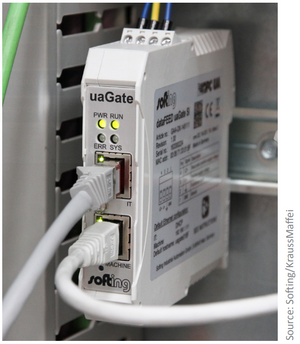
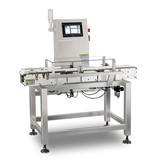
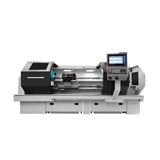
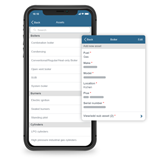




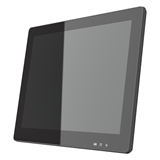
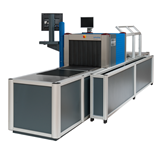




-160x160-state_article-rel-cat.png)

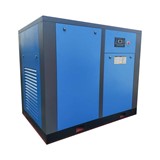


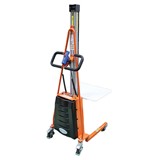

-160x160-state_article-rel-cat.png)


